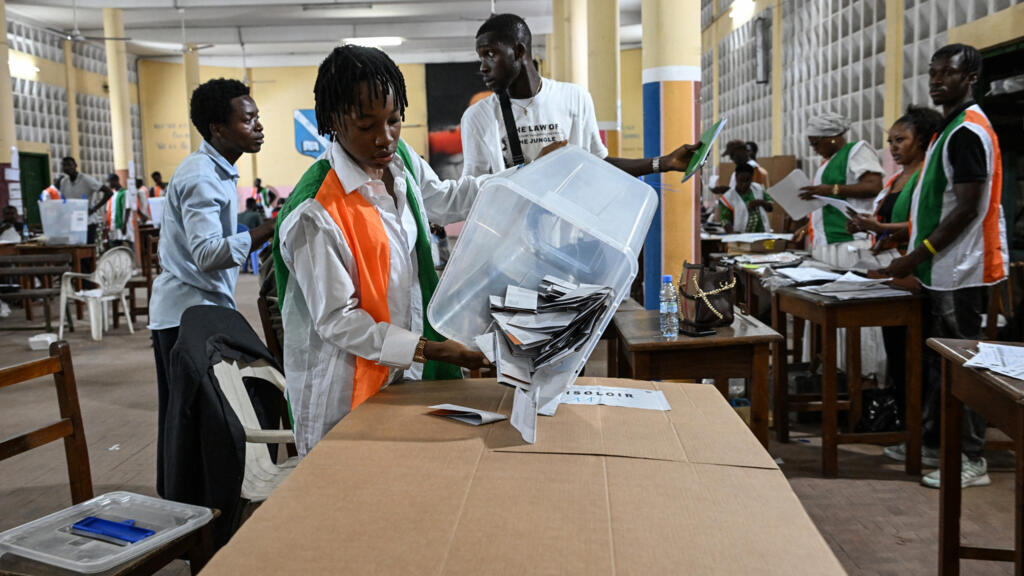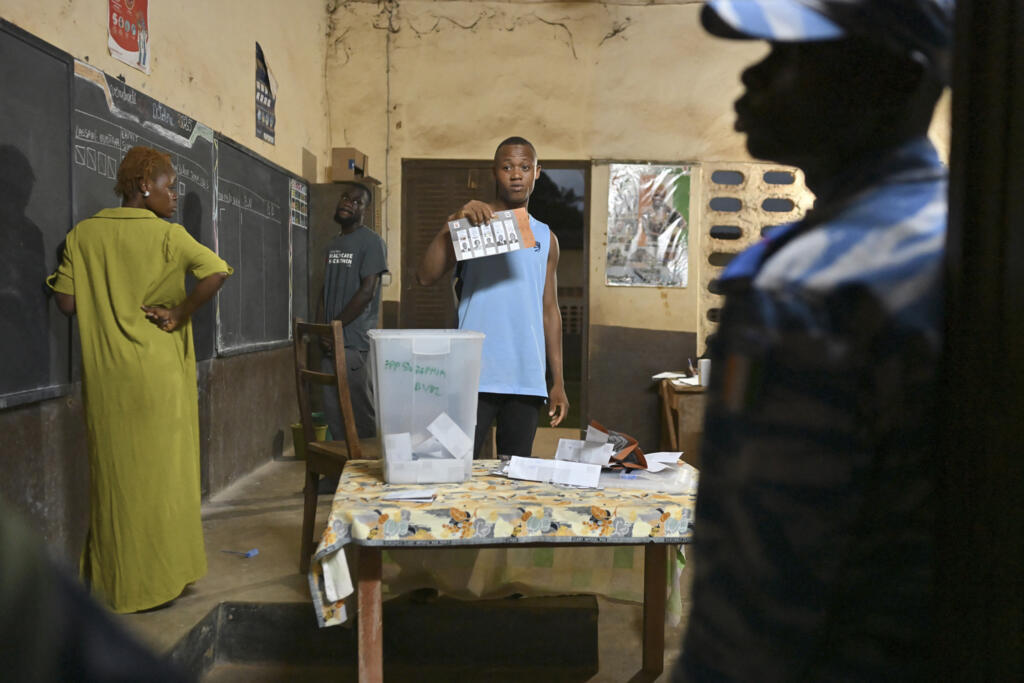
Ivorians voted peacefully on Saturday to elect their president, in a poll held without key opposition leaders and boycotted by part of the electorate.
Nearly nine million voters were called to choose among five candidates, including incumbent Alassane Ouattara who's been in power since 2011.
The election failed to generate much enthusiasm. Turnout was relatively strong in the pro-Ouattara north, but participation was lower in many polling stations in the south and west – strongholds of the opposition.
Cote d'Ivoire goes to the polls: in pictures
The Independent Electoral Commission (CEI) said Saturday evening that it estimated turnout would be around 50 percent, with exact figures expected later on Sunday. If confirmed, that would be lower than the 53 percent in the last elections in 2020.
Four opposition candidates stood against the head of state: former trade minister Jean-Louis Billon a dissident from the Democratic Party of Côte d’Ivoire (PDCI, once the sole ruling party) led by Tidjane Thiam; former first lady Simone Ehivet Gbagbo; Ahoua Don Mello, a sovereigntist close to pro-Russian circles; and Henriette Lagou, a moderate opposition figure.
The final results could be announced as early as Sunday evening, or Monday.

'A farce'
In the economic capital of Abidjan, the streets were unusually quiet and many polling stations visited by RFI remained almost empty throughout the day.
In Anono, a working-class district of Cocody in the north of Abidjan, two friends in their forties explained why they hadn't voted.
"I think leaders should lead by example. If they can’t even keep their word, what’s the point?," one of the men told RFI. "It’s a waste of time. Politics should bring solutions, with leaders who truly aim to improve people’s lives. In Côte d’Ivoire, there are some, but not among the current candidates."
His friend said he supported former Ivorian president Laurent Gbagbo and hasn’t voted since 2010.
"For me, this isn’t an election, it’s a farce, really, just a bit of theatre," he said. "The social climate in Côte d’Ivoire isn’t right. There’s always tension, and cheating. It’s exhausting. And all this North-South divide… it gives you a headache."
In Bonoua, a town in the south-east of the country, an opposition supporter who identified as left-wing said he'd voted out of civic duty.
"I came to vote to fulfil my duty," he told RFI. "If I didn’t make my voice heard today, I’d have no right to complain tomorrow. We’re tired of these boycotts."
In Bouaké, the country's second largest city and gateway to the north, turnout was higher, according to France's AFP. Hundreds of people were still queuing an hour before polling stations closed at 6pm local time (GMT).
Young voters in Côte d'Ivoire want jobs, change – but most of all, peace
200 polling stations disrupted
According to several analysts, the absence of leading opposition figures is behind the voter apathy.
Two of Alassane Ouattara’s main rivals – former president Laurent Gbagbo and international banker Tidjane Thiam – were banned from running by the Constitutional Council, citing Gbagbo’s criminal conviction and Thiam’s nationality issues.
Previous presidential elections in Côte d'Ivoire have resulted in deadly violence – some 3,000 people died at the time of the 2010 polls and 85 in 2020.
On Saturday, incidents were reported in around 10 towns in the south and west, including in Mama, the home village of Laurent Gbagbo, according to observers from the National Human Rights Council (CNDH). Most were thefts of election equipment.
A 13-year-old boy was killed on Saturday by gunfire from a public transport vehicle in Grégbeu (centre-west), a security source told AFP. He was the fifth person to die since mid-October in incidents linked to the electoral process.
The most serious clashes occurred in the village of Lopou in the south, with confrontations between demonstrators and police.
“We don’t want this fourth term,” shouted a resident of the area, echoing a slogan repeated by opposition supporters in recent weeks.
A total of around 200 polling stations were disrupted, according to a security forces report seen by AFP.







